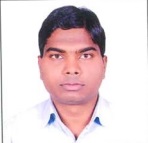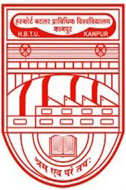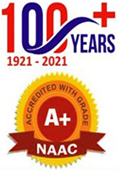Department Profile
The Department of Plastic Technology was established in 1964 with undergraduate degree „B.Sc. Chemical Technology-Plastic Technology‟ of 3-year duration In 1978 the degree offered was changed to post-B.Sc. three years B.Tech. Chemical Technology-Plastic Technology‟ degree which in 1991 was upgraded to regular 4-year B.Tech. degree course after completion of 10+2. to make it at par with other Engineering and Technology courses. The department was brought under the umbrella of School of Chemical Technology in 2016 when HBTI was transformed to Harcourt Butler Technical University (HBTU). Besides B.Tech. program, the department also offers „M.Tech. in Chemical Technology-Plastic Technology‟ and Doctoral program in Plastic Technology. The curriculum of these programs encompasses latest developments in the field as well as present and future needs of the Plastic and allied industry and have been modified as per the guidance of National Board of Accreditation (NBA), New Delhi, for Outcome Based Education (OBE) System with COs of all subjects mapped with Program Outcomes given by NBA. From session 2022-23 the structure and curriculum of B.Tech. and M.Tech. programs have been modified as per the guidance of New Education Policy (NEP). The curriculum of these programs has been approved by BOS, Academic Council and Executive Council of HBTU. The B.Tech. Program in Plastic Technology Department has been accredited by National Board of Accreditation till 2025.
At present Prof. Indira Nigam is head of the department. Other mentors of the department Prof. Deepak Srivastava, Dr. Soma Banerjee and Dr. Manish Kumar are doctorate from reputed institutions are contributing by way of paper publications in National/International journals of repute and by paper presentations in National/International conferences. The department is well associated with various organizations like DMSRDE, RDSO, and has completed various R&D projects sponsored by AICTE, DMSRDE, UPCST etc. The superannuated faculty members and present ones have always been holding administrative responsibilities of the institute/university. Prof. J.S.P. Rai and Prof. A.K. Nagpal held the post of Director of HBTI and has been the chairman/Member of NAAC and NBA accreditation committees. Prof. D. Srivastava and Dr. Reena Singhal holded the post of Dean School of Chemical Technology. The faculty members have been in the advisory board as the expert for testing/ consultancy in many Government/ Private Sector organizations like DST, DMSRDE. The faculty members have been chairman/ experts in the selection committee of faculty and staff positions of many institutions and universities The Department has built up a comprehensive research infrastructure with state of the art facilities for carrying cutting-edge teaching and research. The Plastic Technology Department is proud of its excellent infrastructure and its role in providing the best professionals to the nation. For this there are six laboratories equipped with good number of instruments for providing hands-on-practice to our students and for carrying out research projects. The department has advanced IT facilities like Smart Class room for up gradation of students with latest knowledge and presentation of their seminar topics and progress of projects. Constant efforts are being put up to maintain the high standards of this department to be ranked as one of the best in India. The Department strives to provide its students with facilities and environment that are conducive for creative and dynamic work in their future endeavors. The students of the department undergo Industrial training during summer vacation for 8 weeks after completing 6th Semester and are given project work in the 7th and 8th semester which may be based on industrial problems the students also undertake relevant research projects, which serves the interest of the industries.. The faculty regularly provides technical updates regarding the latest industrial trends. The students are given research oriented working projects at UG level. They are motivated for paper writing, presentation in seminars, symposium, conferences etc. to develop their professional perception. Because of this strong educational training the alumni of department are serving on key positions in topnotch companies of national importance like Reliance Industries Ltd., GAIL, HPCL-Mittal Energy Ltd., ONGC, IOCL, etc. as well as Multinational companies like Exxon Mobil Corporation, Lyondell Basell Industries, General Electric Co., etc. Many Alumni are also established entrepreneurs and successfully running their units. The students of the department are benefitted by such strong alumni network in terms of training and employment. The department keep inviting its alumni to give Expert lecture and interaction with students to improve their employability as well as to apprise them with latest knowledge of Plastic and allied industries.
The department has been conducting Executive Training Program in Polymer Engineering for Graduate Engineers Trainees of IOCL New Delhi for last two years. In addition, the workshops are also organized time to time to train the unemployed youths, BPL youngsters etc. to make them future ready for employment. The department is government recognized for providing the certificates and test reports to various government and private agencies. The plastic materials are tested and evaluated. The consultancy and certificates are provided by experience faculty members of the department.
Vision
“The department of chemical technology-plastic technology aspires to achieve excellence in technical knowledge and skill, research and innovation in Plastics and Allied areas”
Mission
The mission of the Department of Chemical Technology- Plastic Technology are:
M1 : To develop state-of-the-art facilities to impart technical knowledge and skill to the graduate
and post graduate students for plastic and allied industries and research organizations
M2 : be a center of research and innovation for betterment of society in sustainable manner.
M3 : To develop state-of-the-art technologies for testing and consultancy for industry and society.
M4 : To cultivate strong ethical values to be a successful professionals and to become life-long learners.
Program Educational Objectives (PEOs)
The Program Educational Objectives (PEOs) of B.Tech. Chemical Technology-Plastic Technology program are:
PEO1 : Graduates will be technically competent in the field of polymers, resins, processing and
allied areas to cater the need of country.
PEO2 : Graduates will be able to innovate in designs, production of materials and processes for sustainable development of society.
PEO3 : Graduates will serve the industry to meet the challenges in terms of quality assurance and standardization to with stand the global competiveness.
PEO4 : Graduates will discharge duties with professional attitudes and ethics.
Program Educational Objectives (PEOs)
PSO1 : to apply practical skills, technical knowledge in major streams such as chemistry, manufacturing, processing, and applications areas of engineering and technology in plastic and allied industries
PSO2 : to take-up career in research organizations or to pursue higher studies in plastic technology and interdisciplinary programs with high regard for ethical values, environmental and social issues.
Departmental Activities
Expert lectures
Industrial Visit
Alumni Interaction
Program Outcomes as defined by NBA (PO) Engineering Graduates will be able to:
PO 1 Engineering knowledge: Apply the knowledge of mathematics, science, engineering fundamentals, and an engineering specialization to the solution of complex engineering problems.
PO 2 Problem analysis: Identify, formulate, review research literature, and analyze complex
engineering problems reaching substantiated conclusions using first principles of
mathematics, natural sciences, and engineering sciences.
PO 3 Design/development of solutions: Design solutions for complex engineering problems and design system components or processes that meet the specified needs with appropriate consideration for the public health and safety, and the cultural, societal, andenvironmental considerations.
PO 4 Conduct investigations of complex problems: Use research-based knowledge and research methods including design of experiments, analysis and interpretation of data, and synthesis of the information to provide valid conclusions.
PO 5 Modern tool usage: Create, select, and apply appropriate techniques, resources, and modern engineering and IT tools including prediction and modeling to complex engineering activities with an understanding of the limitations.
PO 6 The engineer and society: Apply reasoning informed by the contextual knowledge to assess societal, health, safety, legal and cultural issues and the consequent responsibilities relevant to the professional engineering practice.
PO 7 Environment and sustainability: Understand the impact of the professional engineering solutions in societal and environmental contexts, and demonstrate the knowledge of, and need for sustainable development.
PO 8 Ethics: Apply ethical principles and commit to professional ethics and responsibilities and norms of the engineering practice.
PO 9 Individual and team work: Function effectively as an individual, and as a member or leader in diverse teams, and in multidisciplinary settings.
PO 10 Communication: Communicate effectively on complex engineering activities with the engineering community and with society at large, such as, being able to comprehend and write effective reports and design documentation, make effective presentations, and give and receive clear instructions.
PO 11 Project management and finance: Demonstrate knowledge and understanding of the engineering and management principles and apply these to one’s own work, as a member and leader in a team, to manage projects and in multidisciplinary environments.
PO 12 Life-long learning: Recognize the need for, and have the preparation and ability to engage in independent and life-long learning in the broadest context of technological change
Programmes
Under Graduate
- B. Tech. Plastic Technology
Post Graduate
- M.Tech in Plastic Technology WITH SPECIALIZATION IN Plastic Technology
- View M.Tech flyer for Admission
PhD
Ph D
(i) In Chemical Technology – Plastic Technology
(ii) In Applied Chemistry
Syllabus
Under Graduate
B. Tech. in Chemical Technology – Plastic Technology
Syllabus
Post Graduate
PhD
Refer University Ph D Ordinances
-
Patent Published
Name of the Teacher: Dr. DEEPAK SRIVASTAVA
Patent Application No.202111011903
A Nature of the Patent: Indian
Title of the patent: High Toughness Epoxy/Bamboo Char Composite Reinforced with Silanized TiO2 Nanoparticles
Year of Publish of patent: Publication Date : 26/03/2021
- View BoS 2018, Dated 26.06.2018
- View BoS 2020, Dated 14.09.2020
- View BoS 2023, Dated 03.06.2023
- View BoS 2023, Dated 17.11.2023
- B.Tech. PL New courses
- B.Tech. PL Major Change in Syllabus
- B.Tech. PL Elective courses
- B.Tech. PL Courses related with employability entrepreneurship skill development.
- M.Tech. PL Courses related with employability entrepreneurship skill development.
- M.Tech. PL Elective courses.
- M.Tech. PL New courses developed.




View / Download Faculty Details Year Wise
No team members found.
View / Download Student Details Year Wise
Laboratories
Laboratories / Additional facilities created for improving the quality of learning experience in Laboratories
Facilities
The department provides testing and consultancy facilities for various plastic items.
Ongoing Research Project:
Name of Faculty: Prof. Deepak Srivastava Co-Investigator: Dr A K Rathor, Chemical
Project Tile: Development of nanotube/graphene oxide from waste plastics for waste water application
Funding Agency: UPCST, Lucknow
Amount: 11.94 Lakhs Duration: 3 Years
Consultancy / Testing (from Industry) :
A bigger consultancy from the industries were done by individual professors who are now retired and data are not available. However, small testing for samples from industries were done. The details are as below:
Academic Research
Academic research includes research paper publications, Ph.D. guidance, and faculty receiving Ph.D. during the assessment period.
• Number of quality publications in refereed/SCI Journals, citations, Books/Book Chapters etc.(15)
• Ph.D. guided /Ph.D. awarded during the assessment period while working in the institute(5)
Achievements
1. The faculty members of the department produced more than 30 Ph.Ds in the last three years.
2. About 08 projects were completed funded by different funding agencies.
3. More than 200 publications in national and international journals.
4. Some Notable Achievements by Faculty Member
Publications
- Prof Deepak Srivastava https://scholar.google.com/citations?hl=en&user=sBUZz6IAAAAJ
- Prof. Reena Singhalhttps://scholar.google.com/citations?hl=en&user=gMYOu3IAAAAJ
- Prof. Indira Nigam https://hbtu.ac.in/facultyprofile/readWriteData/FacultyCV/IndiraNigam.pdf
- Dr. Soma Banerjee https://scholar.google.com/citations?user=81lZ_0EAAAAJ&hl=en
- Dr. Manish Kumar https://scholar.google.co.in/citations?user=OVQGBtsAAAAJ&hl=en
POLYMER ENGINEERS AND TECHNOLOGISTS ASSOCIATION (PETA) UNDER STUDENT CHAPTER:
About PETA
POLYMER ENGINEERS AND TECHNOLOGISTS ASSOCIATION (PETA) is the student chapter of Plastic Dept., HBTI-Kanpur, involving all B.Tech, M.Tech, and Ph.D students. Set up in 2014, PETA was started with the aim of helping students to attain general awareness about innovation in technologies related to polymers, to learn about contemporary polymers and related industries and motivate them to become aspirants for future developments in the polymer related fields. It is means of greater academic collaboration among students , Faculty members and industries through various activities
Our Goals
- To create a medium for organizing awareness programme and training for general public in the polymer related fields for sustainable developments of society
- To facilitate interaction between plastic industries/alumni and students to improve their career and job prospects.
- To improve leadership and professional skills by through interaction with other members.
- To provide a platform for students to arrange expert lecture & workshops, conferences, technical festivals, quizzes, newsletters etc. and for interaction with polymer and related industries.
- Website: http://petahbti.com
Programs
- Quiz event ‘POLYQUORA’ on general aptitude and general awareness for Ist Year Students and on technical knowledge for II year and Final year students
- Plastic Awareness Program ‘Ad Mad Show’
- Cultural Performances
- Power point Presentation by Students on Recent developments of Plastics and allied Field
- Alumni Interaction
Glimpses of Event


